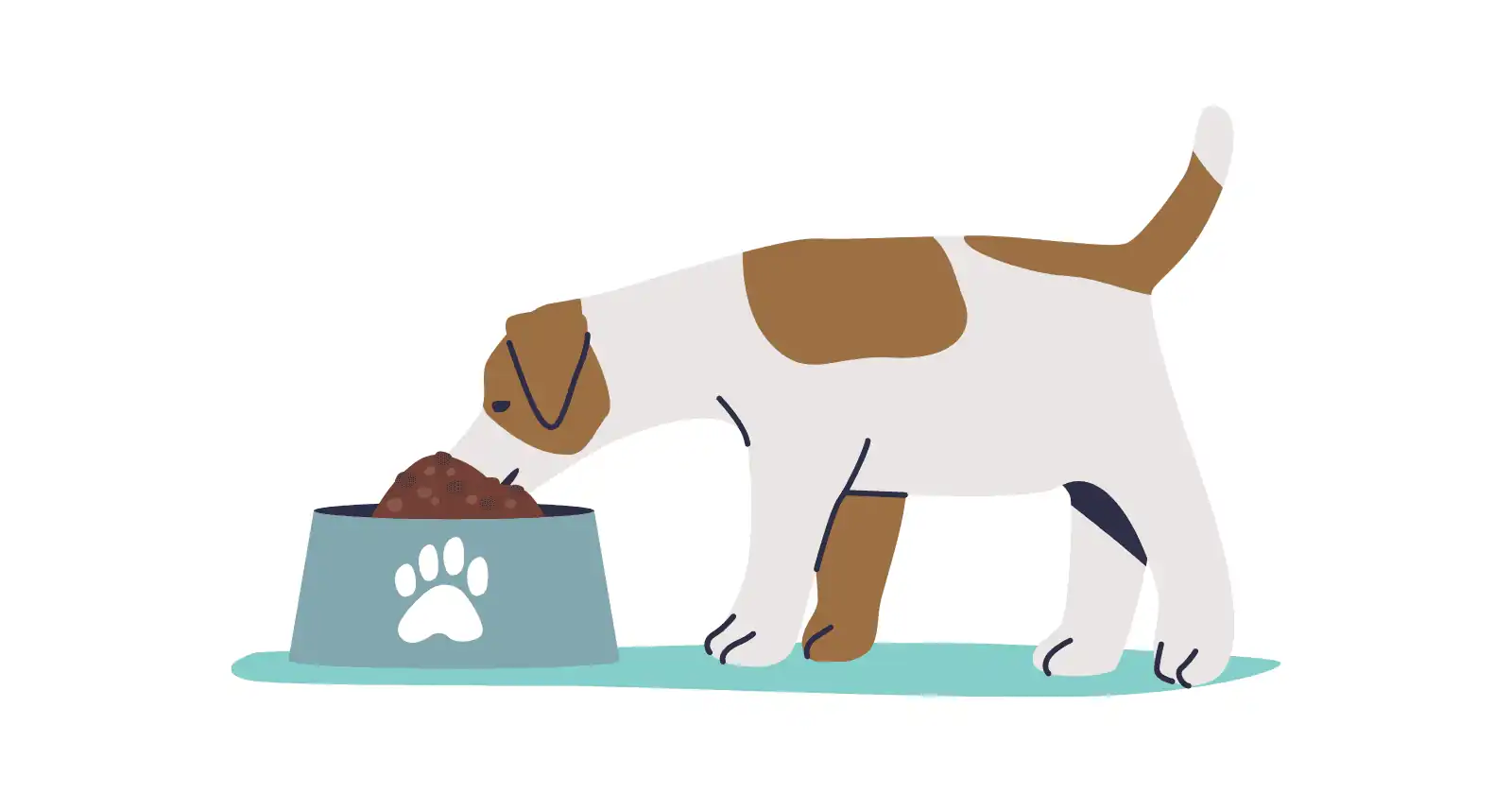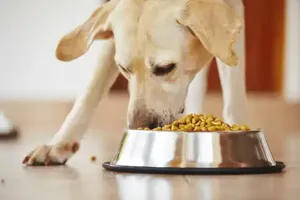Absolutely Avoid These Nutrients in Your Pet Food!

Table of Contents
Choosing the right pet food is essential for your furry friend's overall well-being and health. Just like humans, pets need a balanced and nutritious diet to thrive. But why is it so crucial to be mindful of what goes into their food bowl? Let's dig in!
What To Look Out For When Buying Pet Food
When it comes to choosing the right food for your furry friend, it's always a good idea to seek guidance from a trusted Vet or nutritionist. They have the expertise to recommend meals that will best suit your pet's specific needs. At Kuddle, we even offer a free AI Nutrition Planner on our App and website, which can tailor recipes based on your pet's age and breed, so that will definitely help you make personalized meal plans for your pet too. But hey, we've still got you covered with some handy guidelines from our experienced vet, Dr. Anukarna Singh, to help you navigate the pet food aisle like a pro, so don’t worry!
DOs:
- Do prioritize high-quality animal proteins as the first ingredients in your pet's food. Say no to inferior grain-based sources like wheat and corn. Trust us, your pet's heart doesn't want anything to do with vegan options loaded with pea protein.
- Do go for novel proteins like venison, goat, bison, duck, or rabbit to minimize the risk of food intolerances. It's like giving your pet a taste adventure while keeping them happy and healthy.
- Do opt for specific named protein sources such as lamb, duck, or venison instead of vague "animal" proteins or generic sources like "poultry" or "meat." Let's keep the mystery out of the bowl, shall we?
- Do look for natural preservatives like vitamins C and E, green tea polyphenols, or rosemary (unless your dog is prone to seizures). Chemical preservatives like BHA, BHT, and ethoxyquin? They're not invited to this pet food party.
- Do give your pet some fruity and veggie goodness. Look for foods containing fresh sources of fruits and vegetables. They're nature's way of adding flavor and nutrition to your pet's meal and will help with their digestion.
- Do consider grain-free or gluten-free options, especially if your pet has shown signs of food intolerances or sensitivities like itching or GI. Nobody likes tummy troubles, right?
- Do embrace organic-based products whenever possible. Let's go all natural and give your pet the best nature has to offer.
- Do keep it simple. Look for dry foods with the least amount of ingredients on the bag. Remember, the shorter the ingredient list is, the bigger the natural flavor, and lesser the chances of your pet catching an ailment.
DON’Ts:
- Don't feed your pet foods that could cause intolerances or sensitivities. They deserve a belly full of happiness, not discomfort.
- Don't fall for ingredients that are genetically modified (GMOs) in their food. Let's keep it real, folks.
- Don't settle for products containing by-products. Your pet deserves the finest cuts, not the "leftovers."
- Don't go for foods with artificial colors, flavors, or palatability enhancers. Let's keep the rainbows for the sky, not the food bowl.
Absolutely Avoid These Nutrients in Your Pet Food

When it comes to pet food, there are certain nutrients and ingredients that are best left off the menu. Here is a checklist of things you need to avoid!
- Artificial flavor enhancers, colors, and preservatives: We're talking about those fancy-sounding food dyes like blue 2, red 40, and yellow 5&6. They've been linked to gastritis and allergic reactions. Moreover, nitrates or nitrites used for curing meat have been linked to methemoglobin and cancer. No, thank you!
- MSG (ajinomoto): It may be a taste enhancer, but it can cause some unwanted neurological issues in sensitive individuals. Let's skip the headaches, shall we?
- Synthetic antioxidants (E320, E321, E324): These chemical preservatives, usually listed as “EC-permitted antioxidants”, are ones that you'll want to avoid. They may have intimidating names like BHA, BHT, and ethoxyquin, but they're not invited to the pet food party.
- Meat byproducts: These mysterious "non-specified animal derivatives" can include hooves, entrails, feathers, horns, beaks, and other rejects that didn't make the human cut.
- Animal digests: Sorry, but chemical or enzyme-digested meat of unknown origin doesn't sound appetizing. Let’s pass on that flavor additive, thanks.
- Excess salt and added sugars: We all have a sweet tooth, but too much of these can lead to obesity and diabetes in our furry pals. Moreover, sugar and xylitol are highly toxic for dogs. Excess salt in a pet's diet, on the other hand, can cause their cells to shrivel up and dehydrate.
- Corn syrup: It might be tasty, but it's a risk factor for obesity and diabetes in pets. Plus, it can be quite addictive. Processed fats from unknown origins: When it comes to fats, we prefer known and trusted sources. Sketchy origins? Noooo!
- Wheat: It's often labelled as “cereal/white flour/starch” and is a cheap bulking agent that can trigger intolerance and allergies in many pets. So, let’s pass on the wheat and keep our pets happy and itch-free.
- Milk powder: Sorry, kitties and puppies, but milk was meant for baby cows. Contrary to popular belief, you don’t really have the enzyme to digest the lactose in cow milk formulas! Let's skip the powder and stick to what's best for our furry friends.
- Pea proteinv: Believe it or not, this innocent-looking ingredient has been linked to heart issues (cardiomyopathy) in pets. So, make sure to avoid them like the plague.
- Farmed salmon: Since it is harvested from artificial environments, this fish can come with mercury and fat-soluble toxins, which are harmful to our babies. Make sure to keep our pets' seafood options clean and fresh.
- Melamine: It's used as a filler, but it can lead to some serious renal (kidney) failure. Say no fillers, please!
Conclusion
Remember, choosing the right pet food is like preparing a gourmet meal for your furry friend. By avoiding these problematic nutrients, we're giving our pets the best chance at a long, healthy, and happy life. After all, they rely on us to make the right choices for their nutrition. With a little knowledge and a lot of love, you can ensure that they're getting the nourishment they need without any unwanted ingredients sneaking onto their plate. So let's be their food superheroes and ensure they're getting the high-quality, wholesome meals they deserve. Bon appétit, furry friends!


